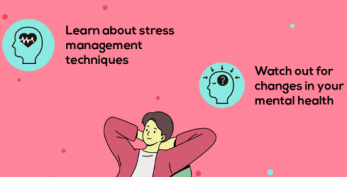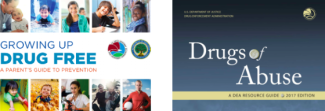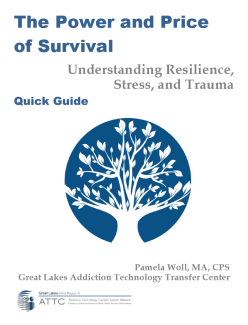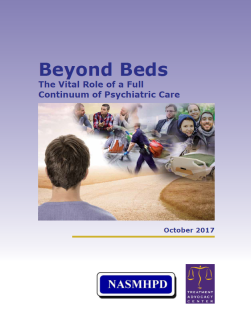Search
Mental Health
The relationship between mental health disorders and substance use and integrated approaches. .
Childhood Emotional Maltreatment and Mental Disorders
Abstract
Child maltreatment is a public health concern with well-established sequelae. However, compared to research on physical and sexual abuse, far less is known about the long-term impact of emotional maltreatment on mental health. The...
Adapting, Pilot Testing and Evaluating the Kick.it App to Support Smoking Cessation for Smokers with Severe Mental Illness
Abstract
Background: While the prevalence of tobacco smoking in the general population has declined, it remains exceptionally high for smokers with severe mental illness (SMI), despite significant public health measures. This project aims...
Neurobiology of Addictions / Neurobiología de las adicciones
ABSTRACT
The proportion of drug abuse users that develop dependence does not represent the totality of users. Therefore, there is a substantial proportion of users that do not develop a substance use disorder (SUD). For example, in Mexico...
Gender Differences in Substance Use and Psychiatric Distress among Medical Students
ABSTRACT
Background: Medical student wellness has emerged as an important issue in medical education. The purpose of the present study was to obtain a comprehensive assessment of substance use, psychological distress, and help-seeking...
Most-Read Knowledge Share Articles of 2017
Reviewing Inclusion Health: An Intervention Programme for At-Risk Populations
Inclusion Health is a framework for action that helps find ways of improving the health and well-being for socially excluded groups. These populations, who have in common adverse life experiences and risk factors, such as poverty and...
Risk and Protective Factors for Substance Use in High-Risk Populations
There tends to be an increase in prevalence of substance use issues within populations living in urban areas and where poverty levels are high.
Certain risk factors, more common in deprived areas, are particularly associated with substance...
The Power and Price of Survival: Understanding Resilience, Stress, and Trauma
2nd Edition, 2011: A series of strength-based resources developed by Pamela Woll for the Great Lakes ATTC, to help prepare the civilian mental health and addiction treatment workforce to address post-deployment stress injuries. This series...
Demographic and Mental Health Characteristics of Individuals who Present to Community Health Clinics with Substance Misuse
Beyond Beds: The Vital Role of a Full Continuum of Psychiatric Care
Summary
Nearly 10 million individuals in the United States are estimated to live with a diagnosable psychiatric condition sufficiently serious to impair their personal, social and economic functioning. Hardly a day goes by without a study...
Unmet Treatment Needs for People with Mental Health and Substance Use Disorders
In the US, less than 10% of adults with co-occurring mental health problems and substance use disorders get treatment for both. 50% do not receive treatment for either.
This highlights the vast discrepancy between the prevalence of co...
Mental Health Training for Primary Health Care Workers and Implication for Success of Integration of Mental Health into Primary Care
Abstract
Background
Mental disorders remain a neglected public health problem in low and middle-income countries (LMICs), most people with mental disorders never receive effective care and there is a large treatment gap. In order to solve...
World Mental Health Day 2017
Dhaka: World Mental Health Day
Speakers at a press conference at Dhaka Ahsania Mission (DAM) called for taking comprehensive steps for preventing the use of drugs among women, saying that drug addiction affects women's mental health as...
Dual Disorders: A New Way to Think about Addiction?
Despite a growing evidence base and numerous policy changes, the association between addiction and other mental health problems is often ignored.
It remains that many patients with Substance Use Disorder (SUDs) also have Other Psychiatric...
Is There a Link between Personality and Exposure to Second-Hand Harms from Alcohol Consumption?
‘Second-hand harm’ from alcohol use can include accidents and/or violence, interrupted sleep, destruction of property, relationship and/or financial problems.
While previous research has found that as much as 70% of undergraduate students...
An Integrative Overview of the Cannabinergic System and Mental Health
ABSTRACT
Background: The endocannabinoid system (eCBs) is one of the modulatory systems widely expressed in the brain. It consists of receptors expressed in the cytoplasmic (CB1 and CB2), the mitochondrial membrane (CB1), and the...
World Health Statistics: Monitoring Health for the Sustainable Development Goals
The World Health Statistics series is the World Health Organization's (WHO) annual compilation of health statistics for its member states. The latest World Health Statistics provides data on 21 health-related Sustainable Development Goals...
Sexual Orientation and Estimates of Adult Substance Use and Mental Health
Abstract
Background: Research suggests that sexual minorities (e.g. people who identify as lesbian, gay, or bisexual) are at greater risk for substance use and mental health issues compared with the sexual majority population that...
WHO Forum on Alcohol, Drugs and Addictive Behaviours
A Growing Issue: An Increased Number Are Entering Drug Treatment for Cannabis Use Across Europe
New research published in the journal European Addiction Research paints a picture of drug treatment services for cannabis-related problems between 2003 – 2014 across 22 European countries.
Notably, it suggests that, on the whole, during...
Share the Knowledge: ISSUP members can post in the Knowledge Share – Sign in or become a member








